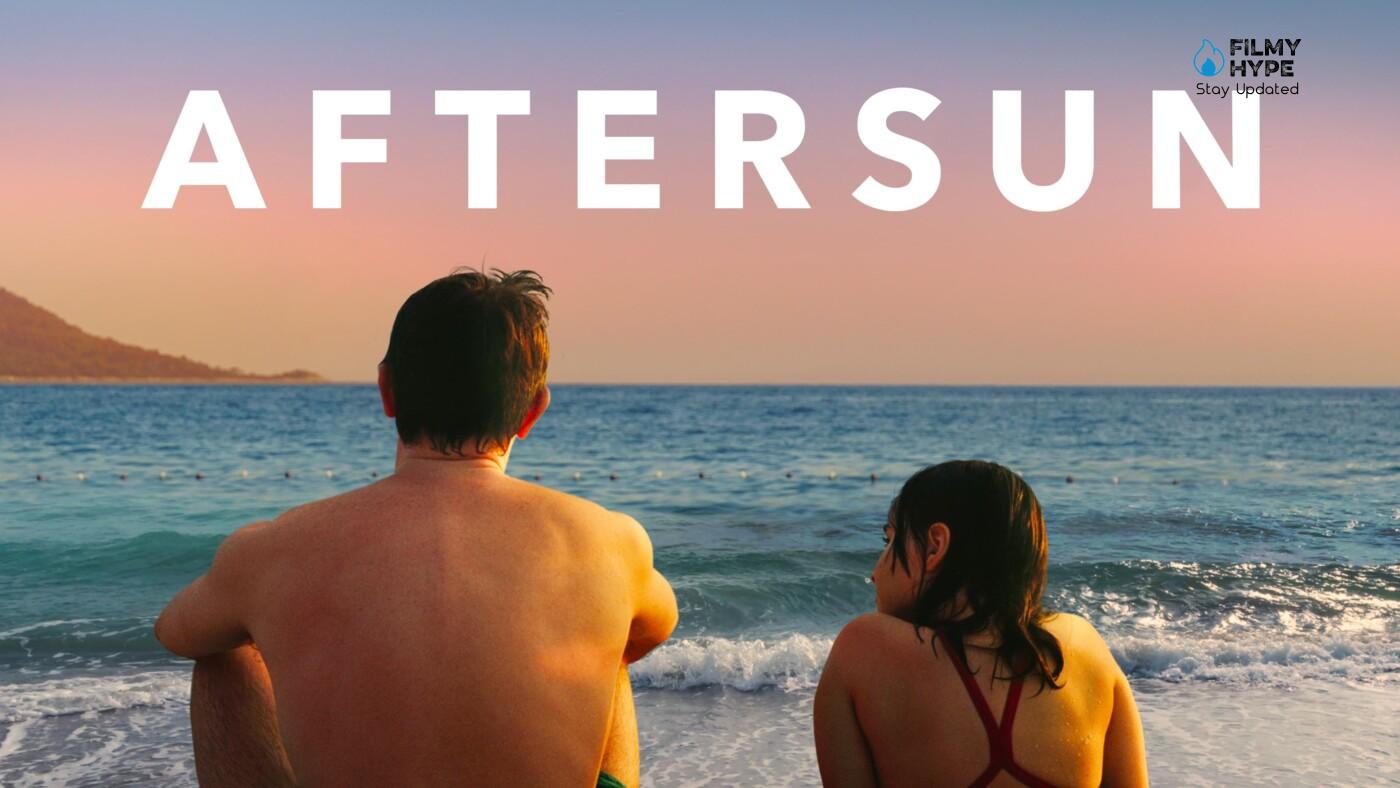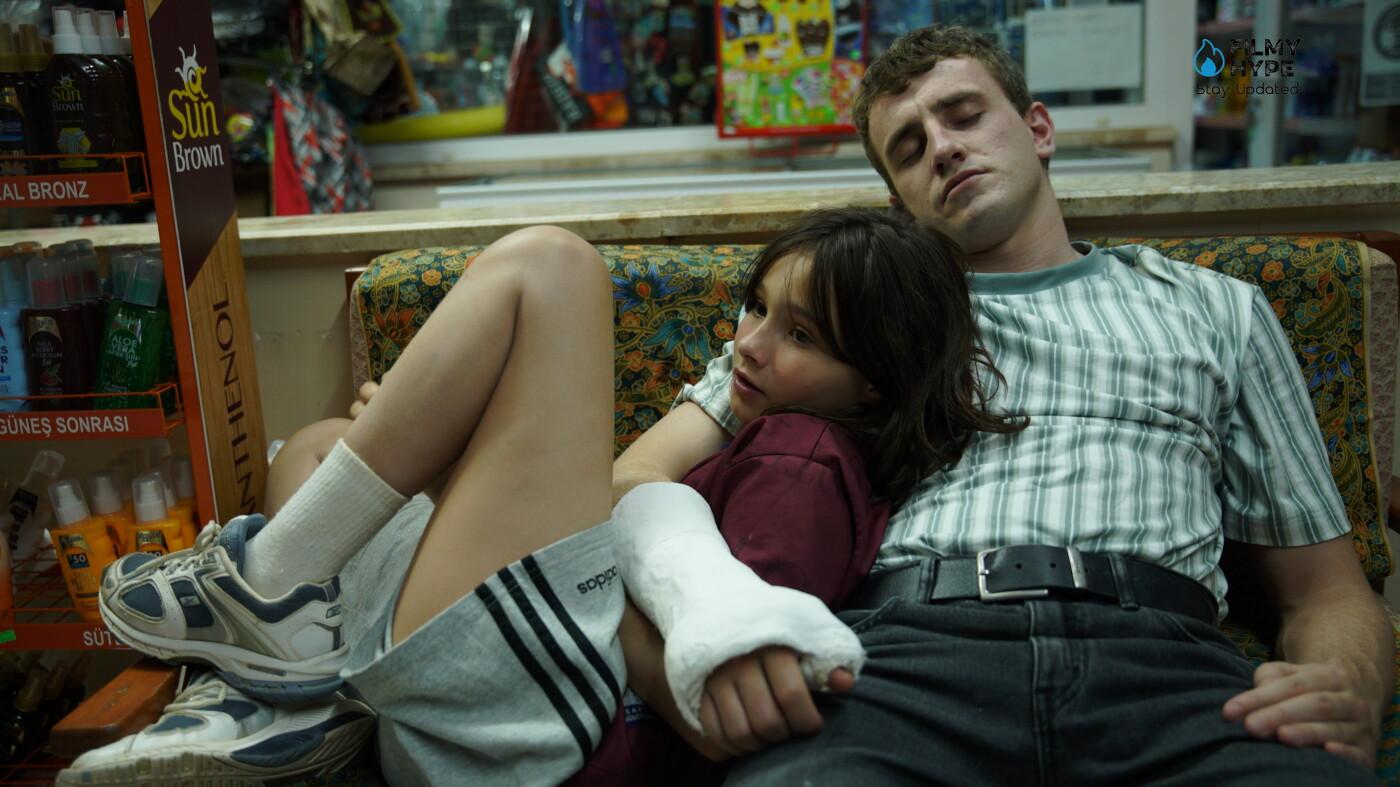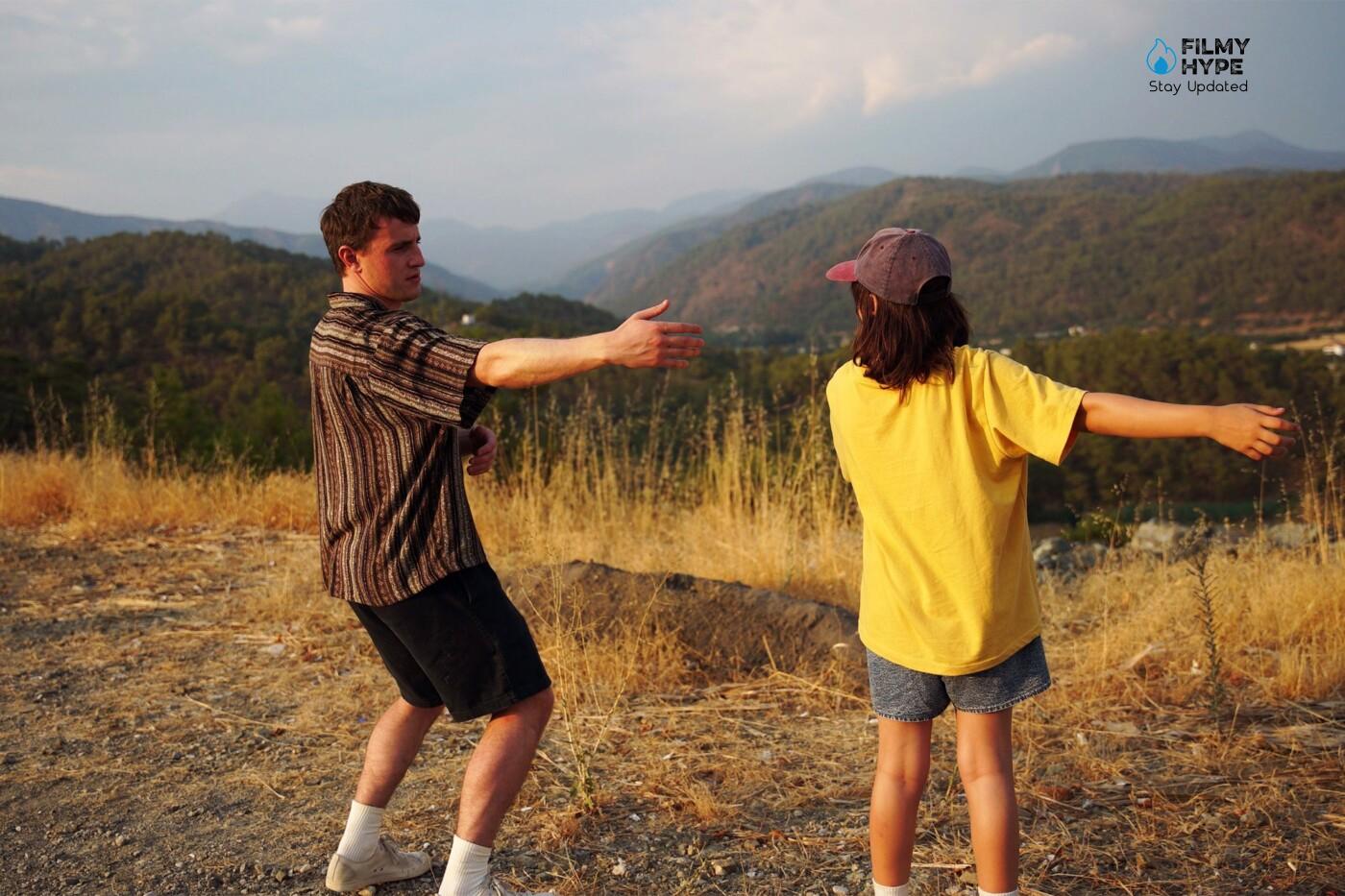Aftersun Review: Relationship Between Moments of Growth and Emotionality Is Explored
Cast: Paul Mescal, Frankie Corio
Director: Charlotte Wells
Streaming Platform: MUBI
Filmyhype.com Ratings: 4.5/5 (four stars)
With Aftersun, a directorial debut that is delicate in its staging but explosive in its introspection, Charlotte Wells adds a noteworthy piece to the A24 productions. Presented at Alice in the City, after its passage to the 2022 Cannes Film Festival in a parallel section, as well as other independent festivals, Wells ‘ film restores the complexity of the father-daughter relationship, entrusting its investigation to the spectator function: between actual memories and voluntary manipulations, Paul Mescal and newcomer Frankie Corio guide us in search of something we would like to know but whose elusiveness we recognize. At the end of Aftersun, the adult Sophie points the camera at the screen. A television on which images of when she was a child pass, of when that summer she spent with her father she began to take a look at teenagers and to try to understand what life was like for adults.

A moment spent together with the parent that the protagonist can observe thanks to her immortalized moments. It is then the movement of the car, already in motion to give the spectator the sensation of a fake panoramic view, which takes the space and the gaze of the public onto a long, white, aseptic corridor, in which that incredibly father is standing. The young man who, in turn, is filming it. A double lens shows the instant of the recording and amplifies it by placing Sophie on a sofa with that camera resting on her legs as if she were framing herself. An image that we want to fix in mind before starting the review of Aftersun, is to travel backward – like the characters – that holiday spent together and that a box containing our memories can project.
Aftersun Review: The Story Plot
During a vacation in Turkey, 11-year-old Sophie cherishes the time she spends with her loving and idealistic father. Twenty years later, an adult Sophie remembers their last vacation together and tries to understand the distance between her father and the man she hasn’t always known. Two roads that are, in some way, separated open up to multiple readings by the viewer. Usually, when we try to remember we also try to understand, and remembering people also means trying to understand what we have become. Sophie is at a p her life where she has to go back to the memory of her father to understand what it really means to be a parent and, perhaps, try to heal some past wounds.
At the same time, she may also find relief in that memory. We don’t know which memories are adherent to the reality of what happened and which ones are not, because it is the narrator herself who is unreliable, and manipulates the entire narrative. The image of her father is often blurred, and there are many situations in which Sophie sees her profile through a mirror: now she is an adult, it’s her birthday, and perhaps she understood for the first time what it means to be a woman on a holiday in Turkey with her father. Mediality is the direct thread with which the director and screenwriter Charlotte Wells creates contact between the characters, which unites them into an even greater fabric which is that of the integrity of the film itself to which they belong.

Aftersun not only has the elements of the present and the past to link that father and his nine-year-old daughter, in a return to memory that presents itself incisively and consistent with Sophie having become a mother in turn but makes the film material central to restoring the fragmentary nature of that relationship and the light/darkness that characterized it. It is with a sequence here too between what is real and what is the expression of a feeling that it becomes the emblem of that sharing which in Sophie’s childhood was alive and fervent even for her father’s young age. A parent mistook for a brother, but potentially a friend rather than an authority figure. A person who has embraced parenthood, yet the work shows him with as many anxieties as possible, deriving precisely from his being so young, from having to take care of someone else in this world, in a time when money is scarce, and he is in looking for a more challenging job.
Aftersun Review and Analysis
A psychedelic scene is divided into several parts, which are gradually recomposed as the film progresses and returns them in a more expanded framework that can explain that moving photograph between music and dance, in which an adult Sophie scrutinizes and slowly approaches her father, always young and rowdy, on the dance floor. A rediscovering of how it was, who and how our parents were, which for Charlotte Wells is not simply reduced to that role to play, but allows an extension that goes by describing and looking at them beyond, as human beings.
In the person of actor Paul Mescal’s Callum, the author channels a restlessness veiled by the gentleness and genuine, boyish love of her father. The interactions with little actress Frankie Corio’s Sophie, in the activities, carried out together or even in the places in the story where the man is left alone, is the portrait of an existence that the filmmaker already makes her protagonist understand as a young girl, in a show of closeness even in this adult stage of hers, now that she too has become a mother.
In the frame of a nineties summer postcard, Aftersun illuminates with tenderness a story that transpires an affection full of an innate sincerity, but also a melancholy that heralds the breakup of something. Perhaps the end of pre-adolescent naivety, perhaps the last summer before closing ties with a father. Alternatively, simply the sadness of a time that no longer exists and that it’s nice to be able to remember now and then. Seeing yourself with your own eyes during that age of discovery when you begin to truly condescend and understand your parents, realizing how fragile they too can be.

Sophie’s childish frankness, which is Frankie Coco’s ability to spontaneously interact with the camera, and the moody alternation of Paul Mescal’s Callum immortalize a holiday that spectators too will take inside. The synergy between the actors, and their influence on their own emotions even before being simple characters born from a one-page script, comes directly like a flash that flashes in the mind in an instant and takes you back to that place where you were on holiday when you were a child. It is the substance of memory that Charlotte Wells makes alive and empathic. She is a daughter who loves her father and a father who wants to be good for his daughter.
In an embrace that is consumed by the contaminated and revisited notes of Under Pressure, Aftersun concludes and gives us back that moment of confrontation of the protagonist Sophie with that part of her past life. On the memory of how he was her father at the age of thirty. She has just completed that age and an unprecedented path awaits her. That parenthood is unique to everyone, while the fullness that leaves Aftersun is the one with which Charlotte Wells has decided to grace all her viewers.
Aftersun Review: The Last Words
With a summer frame that recalls memories and memories, Aftersun is a journey back to a father and daughter’s vacation in which their relationship between moments of growth and emotionality is explored. Solid directorial debut by Charlotte Wells, Aftersun manages to capture on screen the portion of space of memory in which we seek the elusive truth between whom we think we know and whom we have lost.






